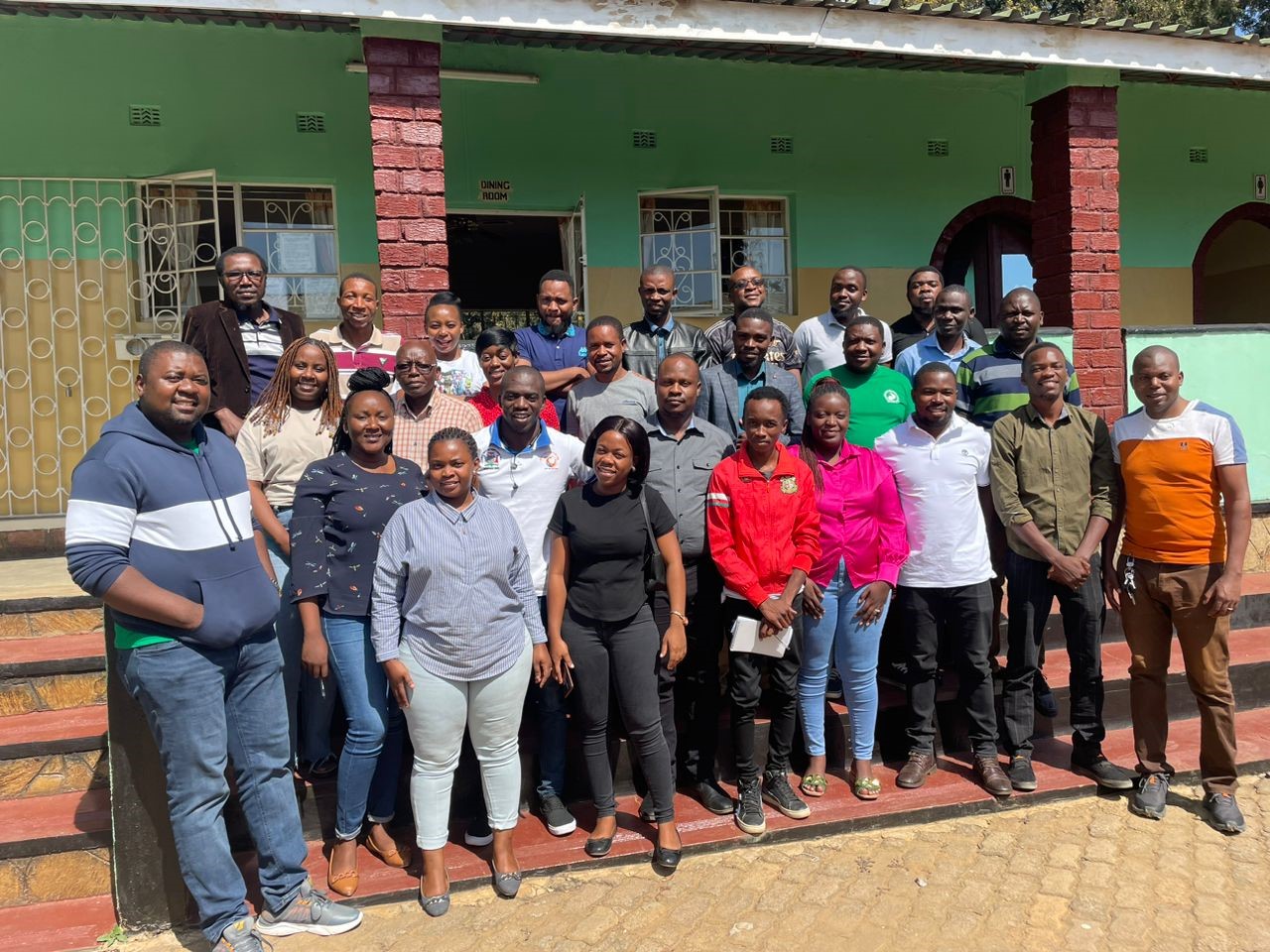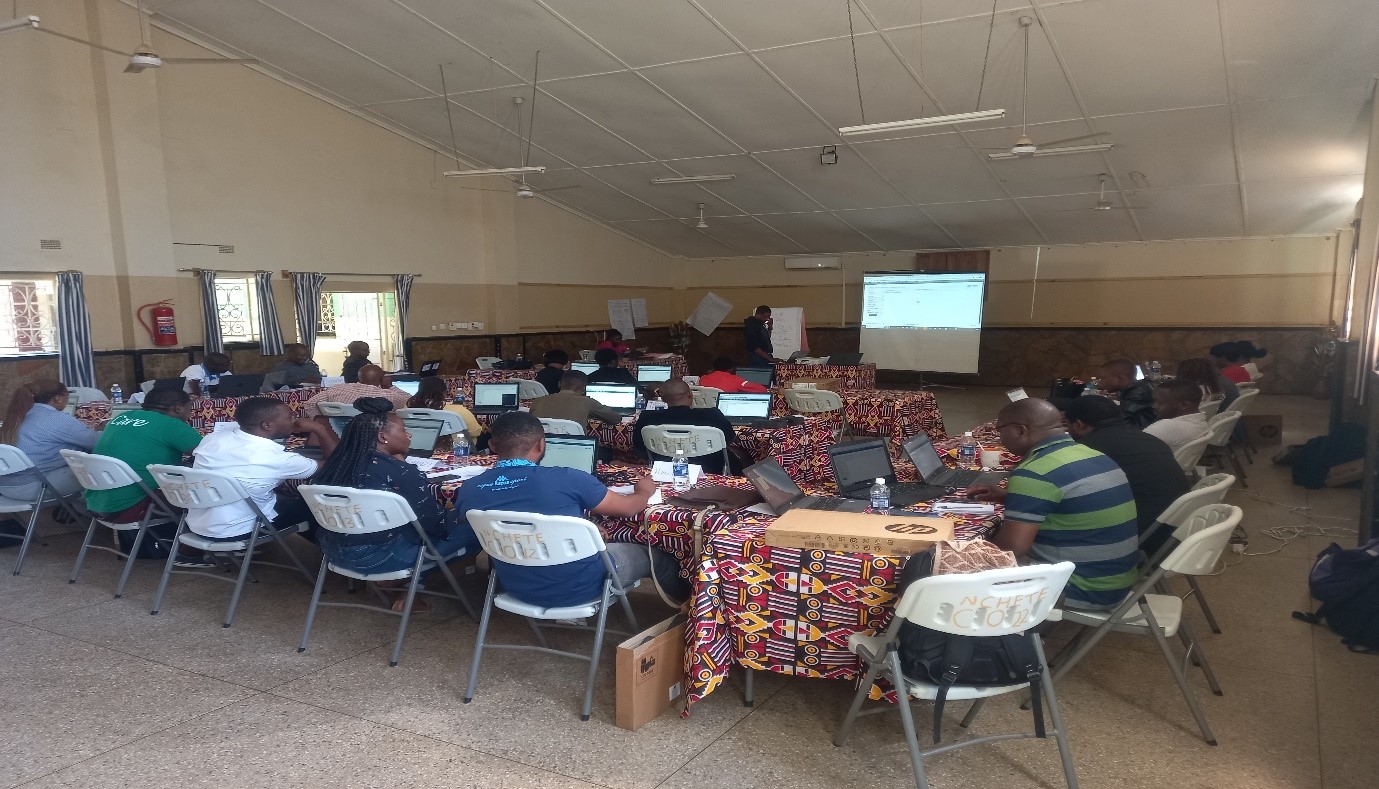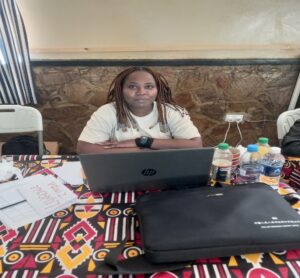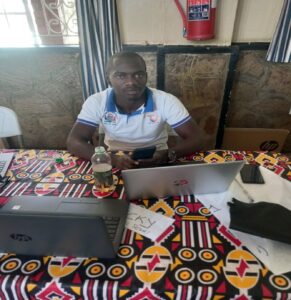
The USAID electronic management information system (eSCMIS) project has been supporting the implementation of the Zambia Ministry of Health (MOH) electronic Logistics Management Information System (eLMIS). The five-year project is scheduled to close-out by the end of 2024, so as the project draws to its end, it is now important than ever to ensure that capacity is built among MOH staff to continue the implementation of the system. Skills and knowledge transfer is crucial to ensure a smooth transition and sustainability of the project’s goals. The USAID eSCMIS project trained MOH staff who later became super users and champions. The super users and champions were targeted as recipients for skills and knowledge-building through various on-the-job trainings (OJTs) during technical support and supervision (TSS) and system deployment so that they could also train others and be able to conduct deployment and TSS on their own.
 Following the recruitment of several health workers by MOH, there were a lot of staff movements in health facilities such that in some cases, all staff members who received training were moved to other facilities. This left a knowledge and skills gap in facilities and providing remote OJT could not address the challenge at once or in a timely manner. For this reason, the MOH in Southern Province saw the need to identify staff to be trained in eLMIS functionality. A four-day training was held in Mazabuka in May 2023, fully funded by the MOH and was conducted in collaboration with MOH super users from the province and the USAID eSCMIS project staff. The main objective of the training was to train more champions in order to broaden the pool of facility staff that can later train other staff and provide technical support and supervision. The training drew 29 participants – each of the 15 districts was represented by either pharmacy or laboratory staff.
Following the recruitment of several health workers by MOH, there were a lot of staff movements in health facilities such that in some cases, all staff members who received training were moved to other facilities. This left a knowledge and skills gap in facilities and providing remote OJT could not address the challenge at once or in a timely manner. For this reason, the MOH in Southern Province saw the need to identify staff to be trained in eLMIS functionality. A four-day training was held in Mazabuka in May 2023, fully funded by the MOH and was conducted in collaboration with MOH super users from the province and the USAID eSCMIS project staff. The main objective of the training was to train more champions in order to broaden the pool of facility staff that can later train other staff and provide technical support and supervision. The training drew 29 participants – each of the 15 districts was represented by either pharmacy or laboratory staff.
Two District Pharmacists who participated in the training shared some of the important takeaways from the training, how it has enhanced their eLMIS knowledge and skills and how it will help them make a valuable contribution to the supply chain.
Ms. Lungowe Nakwebwa, District Pharmacist – Zimba
 “The training was informative and educational. It was also a refresher course for me after having been away from school for some time. I found the content of the training very relevant.
“The training was informative and educational. It was also a refresher course for me after having been away from school for some time. I found the content of the training very relevant.
It was an opportunity to learn the new features that have been added to the system, which have made the logistics system easier. We are now able to see which facility is overstocked or understocked and can use the data available in the system to make decisions. With the system being able to flag commodities that are about to expire, we are able to move the drugs to facilities that might need them sooner or have more demand for the commodities to avoid expiries/losses. Overall, the system and the knowledge we have gained on the data it makes available and its different features has made it easier for us to manage commodities and avoid logistics challenges in the supply chain. It has helped to stabilize the system.
Having undergone the training, I have been able to train new recruits at our facility on how to use the Central Edition and I will also train them on how to use the Facility Edition so that they can provide TSS in the district.
I learned that there is so much we can do with eLMIS. I would not have known all of its functions and features if I had not attended the training. I have however also been able to discover some functions and features on my own because I do invest some time in learning the system. Therefore, I would like to encourage other users to take keen interest and use the system regularly in order to know the system’s functionality and its various enhancements.”
Mr. Luckson Tembo District Pharmacist – Itezhi-tezhi
 “The training went well, I learned a lot of new things. I have been using the Facility Edition since 2015 and the Central Edition since 2017. Previously, I would only use the reporting platform in the Central Edition for creating and approving reports and checking the timing and reporting rates. However, I now know how to use the data in the system for decision making, thanks to the training. As a manager, this will help me with making important supply chain decisions and will improve the supply chain as we can now track consumption issues. We do not have to physically go to the facility to check for stock as we can do that from the comfort of our office through the eLMIS system. This has also helped us reduce transportation costs.
“The training went well, I learned a lot of new things. I have been using the Facility Edition since 2015 and the Central Edition since 2017. Previously, I would only use the reporting platform in the Central Edition for creating and approving reports and checking the timing and reporting rates. However, I now know how to use the data in the system for decision making, thanks to the training. As a manager, this will help me with making important supply chain decisions and will improve the supply chain as we can now track consumption issues. We do not have to physically go to the facility to check for stock as we can do that from the comfort of our office through the eLMIS system. This has also helped us reduce transportation costs.
During the training, I also learned how to troubleshoot various system issues. From the time we had the training I have not called the eLMIS Helpdesk, I have been able to resolve issues on my own. For example, one of our big facilities (Masemo) had an issue and I was able to resolve it, thanks to the knowledge gained through the training. If we had waited for the eSCMIS team or MOH to travel to the facility, the facility would have been crippled especially since it is a big facility which serves a lot of people.
This experience indicates that facilities just need training for them to run smoothly. Reporting rates have improved – we have been recording 100% reporting rates. This is not only as a result of the training but also because the system has been deployed to a lot of facilities in the district. Also, the eLMIS system’s performance has greatly improved over the years, compared to the period between 2017-2018. It has become very reliable as it is hardly down and can be accessed at any time”.
